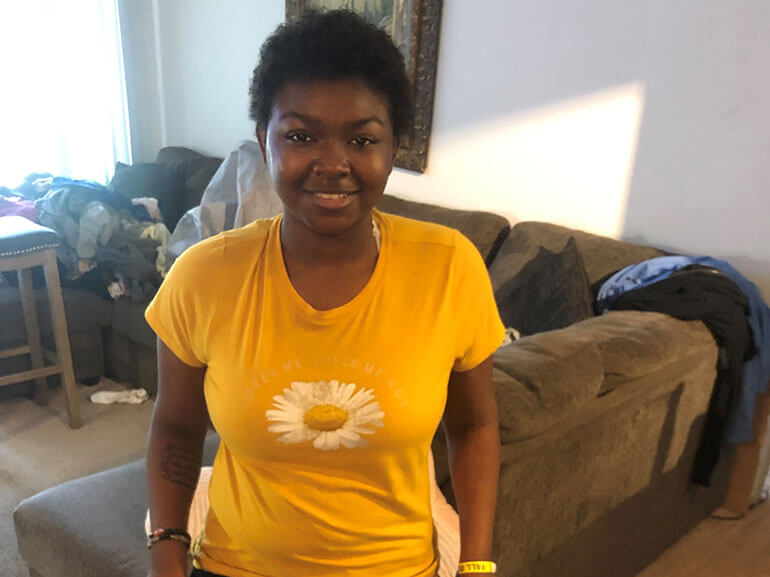Amirah's story

Amirah Williams of Newport News, VA, enjoyed the life of a typical 21-year old. She worked at a bakery and enjoyed painting and taking walks in her spare time. After several weeks feeling extremely tired and not like herself, Amirah sought answers at Riverside Regional Medical Center, where she was diagnosed with pneumonia, given medication and sent home.
The next day, Amirah found herself unable to stand and was taken back to the hospital by ambulance. After several tests, she was diagnosed with Guillain-Barre syndrome (GBS), a condition in which the immune system attacks the body’s nerves. A week later, further testing also resulted in a second diagnosis of lupus, another autoimmune disease that causes the immune system to attack the body’s tissues and organs.
Amirah stabilized after several weeks, but being bed-bound for nearly a month left her weak and unable to walk. She also required assistance for almost all of her activities of daily living. Additionally, while she never entirely lost her ability to speak during the worst of her illness, Amirah was struggling to communicate due to the weakness in her diaphragm. At the recommendation from her care team, Amirah was transferred to Riverside Rehabilitation Hospital for extended rehabilitation to regain strength and stamina. Upon arrival, Amirah’s goals were to walk again and become independent in her personal care and activities of daily living.
In physical therapy, Amirah’s therapists focused on strengthening her core, improving balance and helping transfer from laying to sitting to standing. At first, Amirah required maximal assistance from her therapist and the use of a slide board to transfer positions. As her strength improved, therapists worked with Amirah on standing, using a body-weight supported harness system to assist her before graduating to using the parallel bars to stand and walk.
Occupational therapists worked with Amirah on re-learning how to perform her personal care and activities of daily living, including eating, using the bathroom, bathing and dressing. Upon admission, Amirah could barely feed herself and her balance was so poor that she was unable to shower independently. Amirah’s occupational therapists continued to work with her on dressing and bathing at bed level, which provided her with some independence as well as stability while she was concurrently working on building up her strength in physical therapy.
Amirah’s therapists worked as a team to push her toward her goals, incorporating activities she enjoyed such as playing cards and doing puzzles to work on strength and dexterity. Amirah credits them with pushing and encouraging her beyond what she thought she could do.
“My experience at Riverside Rehabilitation Hospital was life changing,” Amirah said. “It changed my whole perspective on life. When I was able to take my shirt off on my own – that was when I knew I’d made it. I realized I can do anything if I put my mind to it.”
Amirah’s drive and trust in her therapists plan resulted in dramatic progress. By the time she left Riverside Rehabilitation Hospital after four weeks, Amirah was able to walk over 400 feet with a walker, and could walk 200 feet without a walker with minimal assistance. Amirah was also able to independently complete all self-care tasks and could safely transfer positions with just the aid of a rolling walker.
With the support of her family, who participated in home training to learn how to be better able to help her, Amirah plans to continue rebuilding her strength, stamina and balance at home with the use of a walker and home therapy exercises.